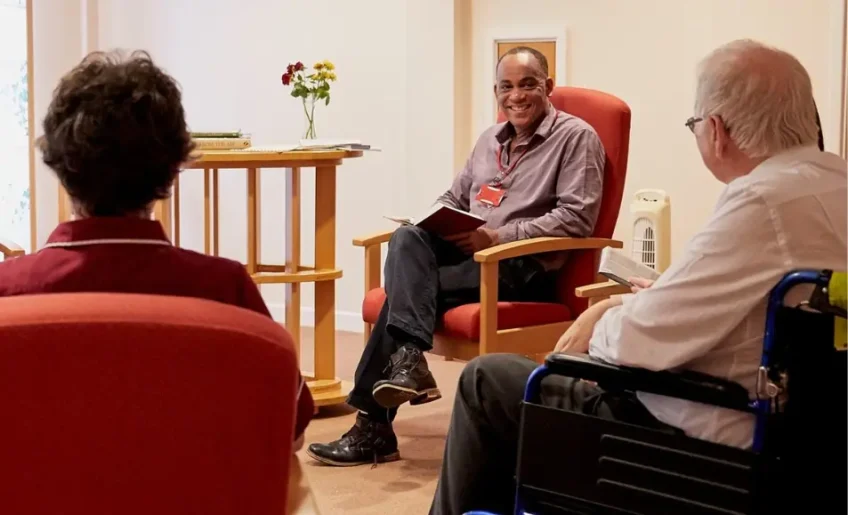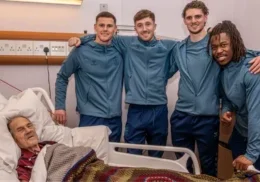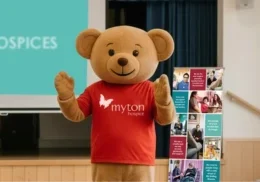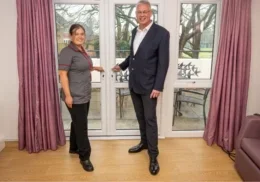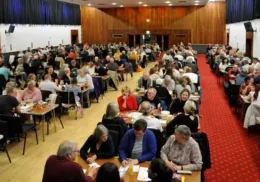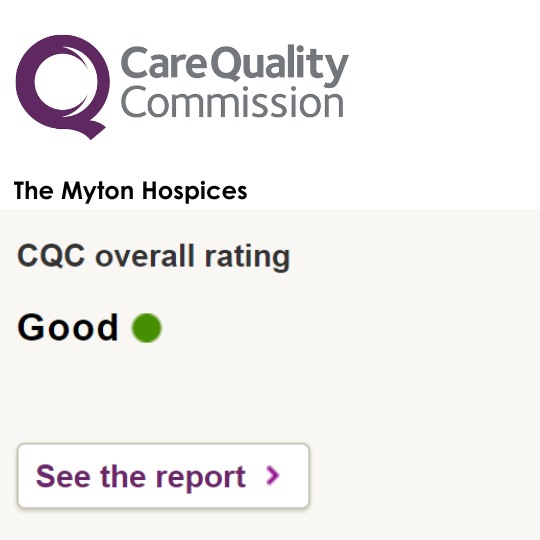This Interfaith Week, we’re celebrating the diversity of faiths, beliefs and worldwide views that make up our community, and we’re reflecting on how these shape the way we find meaning, comfort and peace throughout and at the end of life.
At The Myton Hospices, we care for people from all walks of life, faiths and beliefs. We believe everyone deserves the care and support that reflects their values, culture and spirituality, whatever that may looks like for them.
Our Spiritual Care Lead, Ellie Clack, said:
Spiritual care plays a vital role in palliative care. A life-limiting diagnosis often leads people to reflect deeply on their lives and consider their own death in new ways. Whilst many people assume that spiritual care is purely religious, though for some this may play a part, spiritual care is about tending to what makes us who we are – what gives our lives meaning, our hopes and fears, and everything in between.
Many religious traditions offer guidance on end of life practices, and part of our role is to help facilitate these. But our starting point is always the person in front of us, asking what is most meaningful to them and what will bring them the greatest comfort as they approach death.
For some people, that means prayer, scripture or connecting with a faith leader. For others, it might be finding time for meditation, reflection or simply sitting quietly in nature. Our Spiritual Care team is there to help everyone access what matters most to them, whether through faith traditions, cultural practices or moments of stillness and connection.
The care our Spiritual Care team provides goes beyond our patients. They are also here for families, carers, and loved ones, offering a compassionate, non-judgemental space to talk, reflect and find strength.
For our patients and their families, this can mean listening as they share memories, worries or questions, helping them make sense of difficult emotions, or supporting them to honour their beliefs and wishes.
Sometimes this involves facilitating specific religious or cultural practices, such as arranging for faith leaders to visit, providing resources for prayer or reflection, or ensuring end of life rituals are observed in the way that feels right for each person.
At other times, it’s about simply being present, sitting alongside someone in stillness, helping with memory-making, funeral planning or legacy work, or supporting loved ones as they prepare to say goodbye.
Ellie continued:
In our hospices and in the care we provide at peoples’ homes, we see every day how personal and unique the journey of dying can be. Interfaith Week is a wonderful opportunity to celebrate the richness of our community’s spirituality and culture, and most of all, our shared humanity.
Interfaith Week reminds us how much we all share, no matter our background or beliefs. At Myton, these values guide the way we provide care, supporting everyone’s beliefs and ensuring each person’s wishes are respected.


